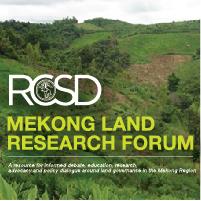Resource information
This paper investigates how climate change strategies and resource conflicts are shaping each other in the Greater Aural region of western Cambodia. Agro-industrial projects linked to climate change goals are reshaping both social and ecological dynamics, by altering patterns of access to land and water resources as well as the nature of the resources themselves. Using a landscape perspective, we investigate these social and ecological changes occurring across space and time. Drawing on data from community researchers, field visits, interviews and secondary sources, we examine two kinds of connections between climate change responses and resource conflicts in the Greater Aural: 1) demand for biofuels as a driver of flex crop expansion; and 2) the construction of irrigation infrastructure as a climate change adaptation strategy. Findings include that some impacts of flex crop expansion and irrigation systems are local and immediate, for example when villagers lose land, plantation workers are not paid, and cassava processing pollutes local water supplies. Other impacts are transferred to different locations or deferred to the future, for example when changes in water quality and quantity affect those living downstream, or when soil degraded by cassava production becomes unproductive for future generations. We conclude that climate change strategies are now deeply entangled with resource conflicts in the Greater Aural region. Adopting a landscape perspective and working directly with community researchers opens new pathways for identifying not only site-specific, but also cumulative and shifting impacts of climate change strategies and their relationship to resource conflicts.



